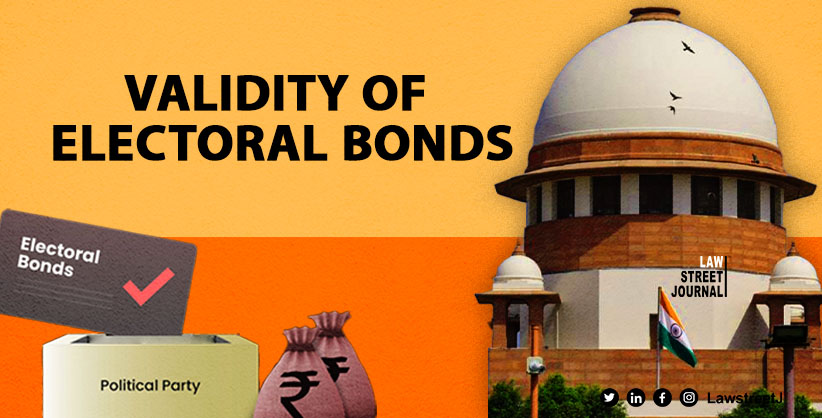NEW DELHI: The Supreme Court on Monday fixed the issue related to validity of Electoral Bonds for adjudication before a five-judge Constitution bench, in view of the importance of the matter.
A bench of Chief Justice of India D Y Chandrachud and Justices J B Pardiwala and Manoj Misra acted on the request received on email and mentioning made by a counsel to put the batch of matters before the larger bench.
During the mentioning, the bench said in view of importance of the matter, under Article 145(3) of the Constitution, a batch of petitions may be listed before a bench of five judges. The matter has already been posted for hearing on October 31.
On October 10, the court had fixed the matter for hearing on October 31 and November 1.
Advocate Prashant Bhushan, appearing for NGO Association for Democratic Reforms, had submitted that the electoral bonds scheme was challenged for the fact that it was passed a money bill; secondly it is anonymous funding which violates right to information of citizens; and, it also promotes corruption, as large amount of funding coming to political parties from companies which have received some benefits from them.
The scheme introduced in 2018 was challenged by the Association for Democratic Reforms, Communist Party of India (Marxist), Dr Jaya Thakur (Congress leader), Spandan Biswal, and others.
The apex court had in 2021 by a detailed interim order, had declined to put on hold of the scheme and rejected the charge that it was totally opaque. The apprehension that foreign corporate houses may buy the bonds and attempt to influence the electoral process in the country, was "misconceived", it had said.
The court had then also said that under Clause 3 of the Scheme, the Bonds may be purchased only by a person, who is a citizen of India or a company incorporated or established here. It also noted the purchase as well as encashment of the bonds, happening only through banking channels, is always reflected in documents that eventually come to the public domain.
The petitioners claimed the identity of the purchaser of the electoral bonds is kept anonymous and the real anonymity is when the money is transferred to a political party, who has transferred to which political party is anonymised from the public domain, and that is the real challenge.
















